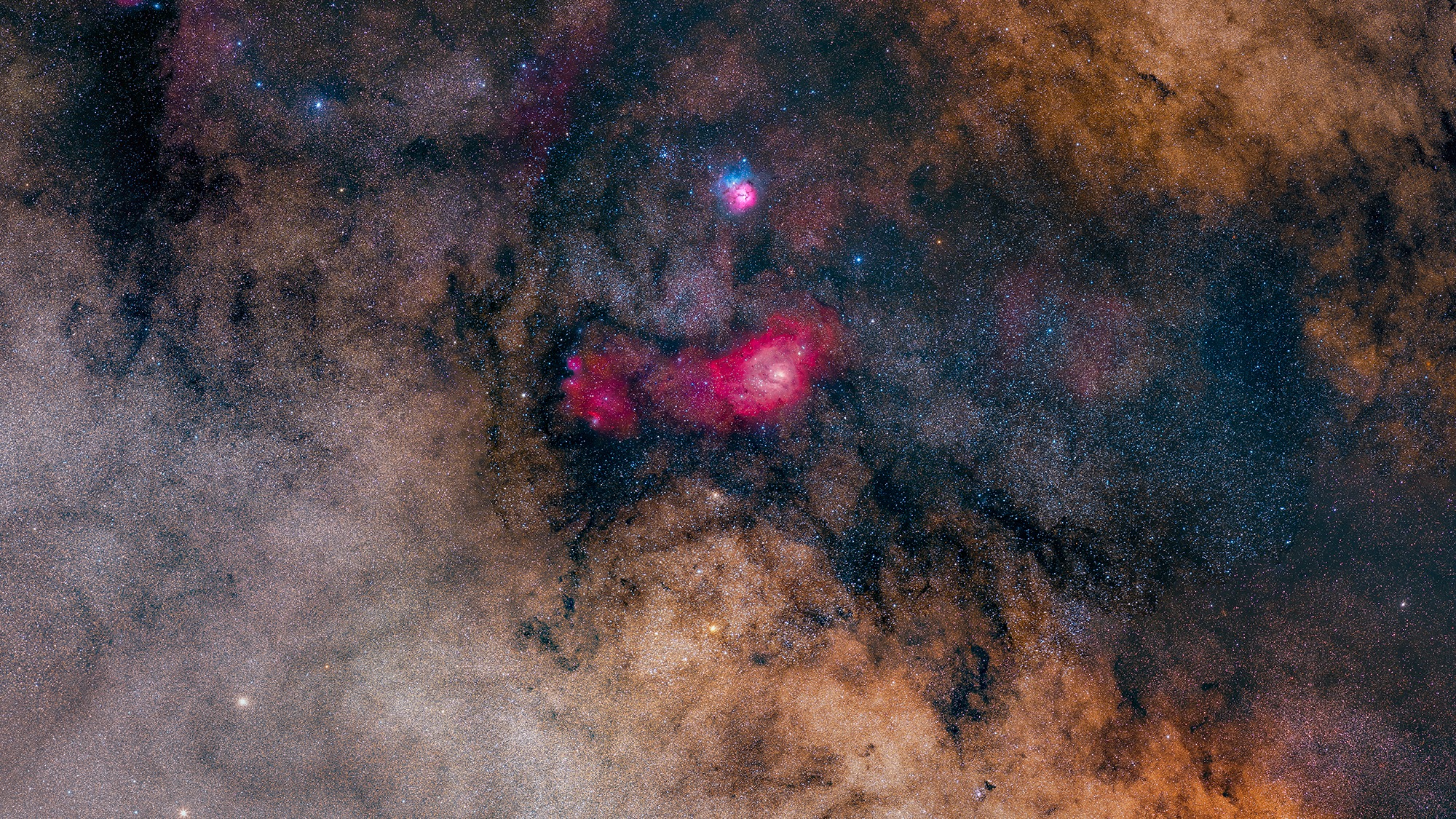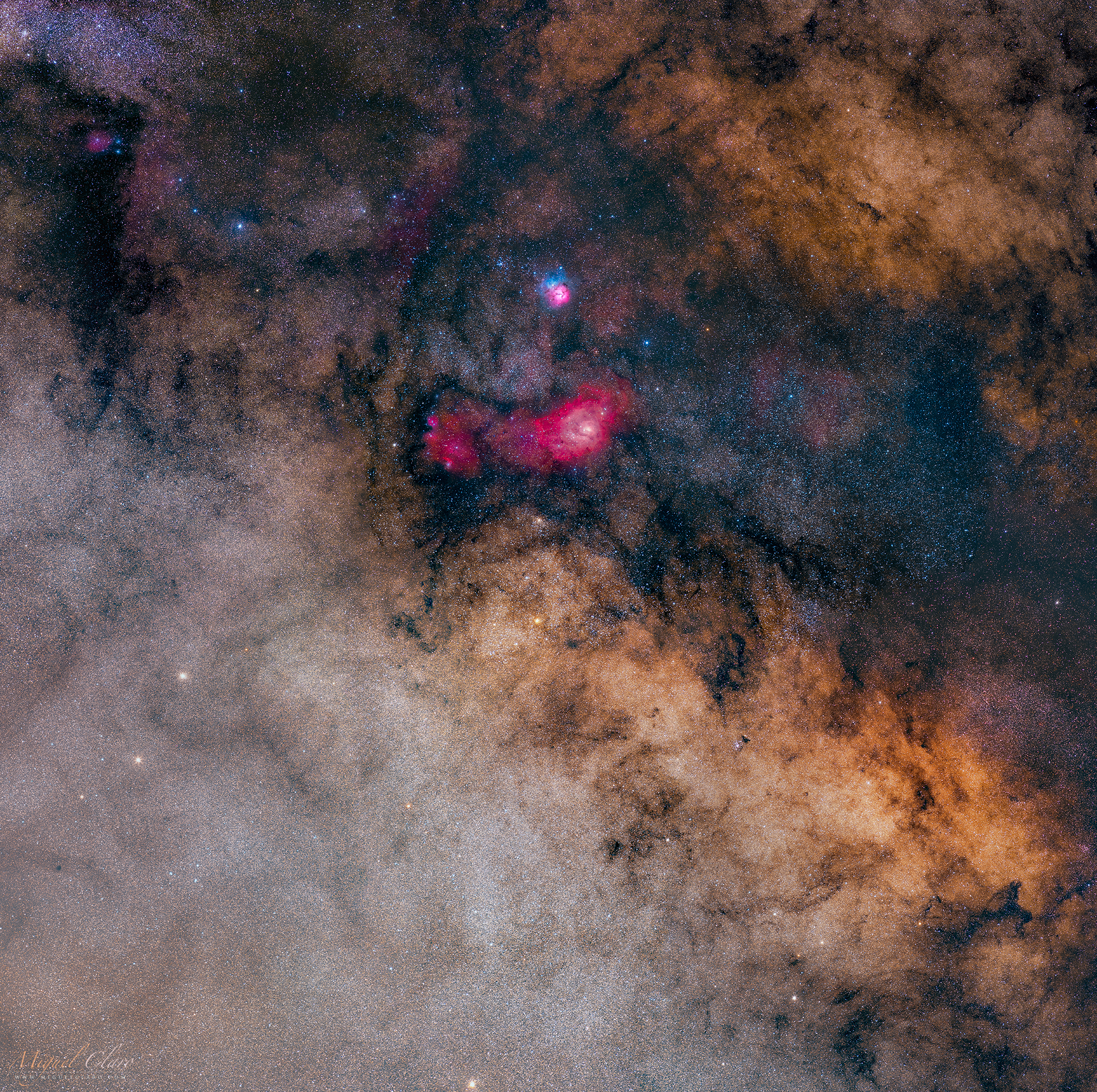
Miguel Claro is a professional photographer, author and science communicator based in Lisbon, Portugal, who creates spectacular images of the night sky. As a European Southern Observatory Photo Ambassador and member of The World At Night and the official astrophotographer of the Dark Sky Alqueva Reserve, he specializes in astronomical "Skyscapes" that connect both Earth and the night sky.
The Milky Way's dusty heart glows eerily in a new high-resolution image from Portugal.
Photographer Miguel Claro captured a wide, deep-sky view of the Milky Way at the Dark Sky Alqueva Reserve, focusing on the dark heart of our home galaxy and the glowing gas clouds in that region, known as nebulas.
"Besides showing a background completely full of stars and immersed in cosmic dust, we can easily recognize many well-known deep sky objects," Claro wrote on his website. Examples include the Lagoon Nebula (Messier 8) and the Prawn Nebula (IC4628). There are many more objects visible besides.
Related: First ever map of Milky Way's galactic graveyard revealed

Alongside the two emission nebulae, where gas is hot enough to glow with its own light, sharp eyes can also spot the reflection nebula of Trifid M20. Reflection nebulas include a lot of dust, which can reflect nearby starshine to make the dust visible.
The image also includes a single prominent star, 3 Sagittarii, in the constellation Sagittarius that is "very close to the real galactic center of the Milky Way galaxy," Claro wrote.
Claro took the shot using a modified Canon 6D, with a fixed prime lens of 300mm f/2.8 set to f/3.5. The exposure was for 70 seconds per panel, with six panels combined to make the final large image.
To see more of Miguel Claro's work, please see his website or follow his stories on Instagram at www.instagram.com/miguel_claro .
Editor's Note: If you snap your own photos of the sun or night sky and would like to share them with Space.com’s readers, send your photo(s), comments, and your name and location to spacephotos@space.com.







